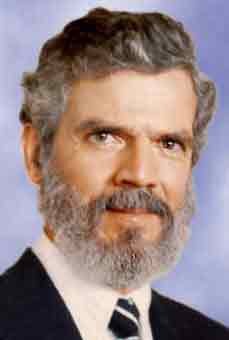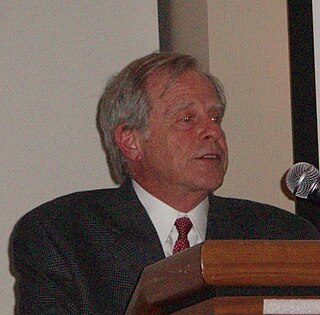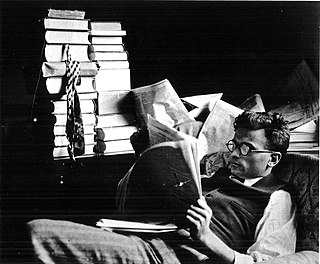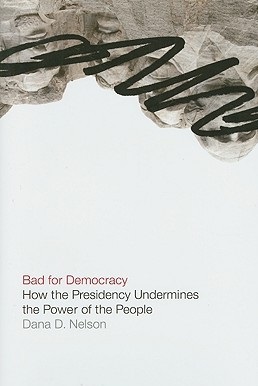
In the United States, politics functions within a framework of a constitutional federal republic. The three distinct branches share powers: the U.S. Congress which forms the legislative branch, a bicameral legislative body comprising the House of Representatives and the Senate; the executive branch, which is headed by the president of the United States, who serves as the country's head of state and government; and the judicial branch, composed of the Supreme Court and lower federal courts, and which exercises judicial power.
Representative democracy, electoral democracy or indirect democracy is a type of democracy where representatives are elected by the public. Nearly all modern Western-style democracies function as some type of representative democracy: for example, the United Kingdom, Germany, France, and the United States. This is different from direct democracy, where the public votes directly on laws or policies, rather than representatives.
Participatory democracy, participant democracy, participative democracy, or semi-direct democracy is a form of government in which citizens participate individually and directly in political decisions and policies that affect their lives, rather than through elected representatives. Elements of direct and representative democracy are combined in this model.

Rudolph Joseph Rummel was an American political scientist, a statistician and professor at Indiana University, Yale University, and University of Hawaiʻi at Mānoa. He spent his career studying data on collective violence and war with a view toward helping their resolution or elimination. Contrasting genocide, Rummel coined the term democide for murder by government, such as the genocide of indigenous peoples and colonialism, Nazi Germany, the Stalinist purges, Mao Zedong's Cultural Revolution, and other authoritarian, totalitarian, or undemocratic regimes, coming to the conclusion that democratic regimes result in the least democides.

Cass Robert Sunstein is an American legal scholar known for his work in constitutional law, administrative law, environmental law, and behavioral economics. He is also The New York Times best-selling author of The World According to Star Wars (2016) and Nudge (2008). He was the administrator of the White House Office of Information and Regulatory Affairs in the Obama administration from 2009 to 2012.

Benjamin R. Barber was an American political theorist and author, perhaps best known for his 1995 bestseller, Jihad vs. McWorld, and for 2013's If Mayors Ruled the World. His 1984 book of political theory, Strong Democracy, was revised and reissued in 2004. He was an adviser to political leaders including Bill Clinton, Howard Dean, and Muammar Gaddafi. He was a board member of the Gaddafi International Charity and Development Foundation.

The values and ideals of republicanism are foundational in the constitution and history of the United States. As the United States constitution prohibits granting titles of nobility, republicanism in this context does not refer to a political movement to abolish such a social class, as it does in countries such as the UK, Australia, and the Netherlands. Instead, it refers to the core values that citizenry in a republic have, or ought to have.

Theodore J. "Ted" Lowi was an American political scientist. He was the John L. Senior Professor of American Institutions teaching in the Government Department at Cornell University. His area of research was the American government and public policy. He was a member of the core faculty of the Cornell Institute for Public Affairs.
Strong Democracy: Participatory Politics for a New Age by Benjamin R. Barber was published by the University of California Press in 1984 and republished in a twentieth anniversary edition in 2004. The book argues that representative or "thin" democracy is rooted in an individualistic "rights" perspective that diminishes the role of citizens in democratic governance. The work offers a theoretical critique of representative or liberal democracy and a foundation for participatory politics. The final chapter elucidates practical ways to apply the theory of strong democracy in large industrial societies.

Liberal democracy, western-style democracy, or substantive democracy is a form of government that combines the organization of a democracy with ideas of liberal political philosophy.

Mario Einaudi (1904–1994) was an Italian scholar of political theory and European comparative politics.
Criticism has been a key part of democracy, its functions, and its development throughout history. Some critics call upon the constitutional regime to be true to its own highest principles; others reject the values promoted by constitutional democracy.

Bad for Democracy: How the Presidency Undermines the Power of the People (2008) is a non-fiction book written by Vanderbilt professor Dana D. Nelson. It is notable for its criticism of excessive presidential power and for her call for substantive political reform. Nelson's focus is not on particular presidents, but she argues that the office of the presidency itself "endangers the great American experiment."
Citizens United v. Federal Election Commission, 558 U.S. 310 (2010), is a landmark decision of the Supreme Court of the United States regarding campaign finance laws and free speech under the First Amendment to the U.S. Constitution. The court held 5–4 that the freedom of speech clause of the First Amendment prohibits the government from restricting independent expenditures for political campaigns by corporations including for-profits, nonprofit organizations, labor unions, and other kinds of associations.

Citizenship of the United States is a legal status that entails Americans with specific rights, duties, protections, and benefits in the United States. It serves as a foundation of fundamental rights derived from and protected by the Constitution and laws of the United States, such as freedom of expression, due process, the rights to vote, live and work in the United States, and to receive federal assistance.
Isaac Kramnick was an American political theorist, historian of political thought, political scientist, and the Richard J. Schwartz Professor of Government at Cornell University. He was a subject-matter expert on English and American political thought and history.

The End of Liberalism: The Second Republic of the United States is a non-fiction book by Theodore J. Lowi and is considered a modern classic of political science. Originally published in 1969, the book was revised for a second edition in 1979 with the political developments of the 1970s taken into consideration. The book examines the developments of government during the years between its publishing and the Great Depression.

Jason F. Brennan is an American philosopher and business professor. He is the Robert J. and Elizabeth Flanagan Family Professor of Strategy, Economics, Ethics, and Public Policy at the McDonough School of Business at Georgetown University.
Caroline Tolbert is an American political scientist. She is a professor of political science at the University of Iowa. She studies elections, voting, and civic engagement in American politics. Much of her work deals with peoples' capacity to use internet technology, digital technology policy, and the relationship between technology use and social participation.












